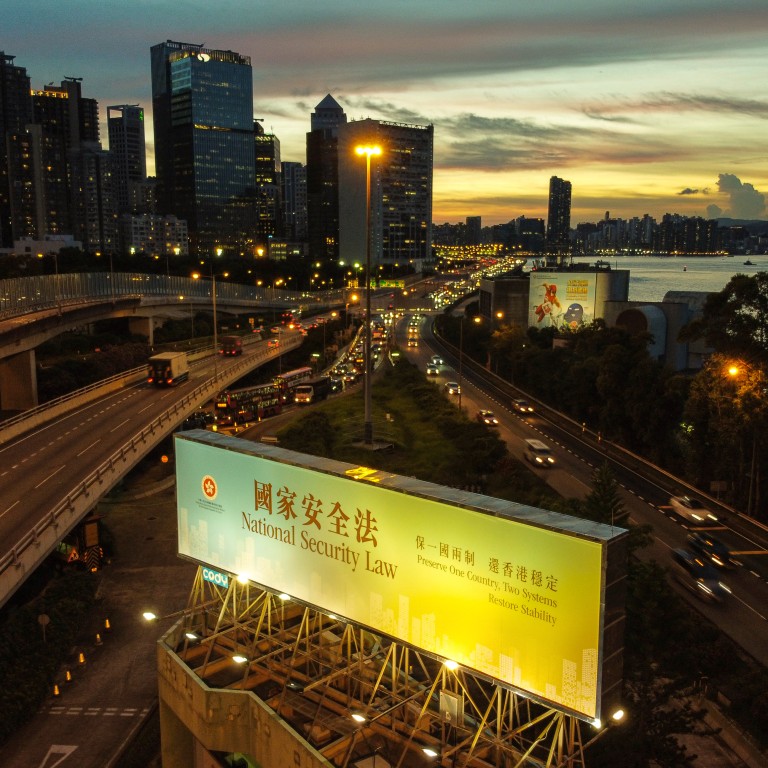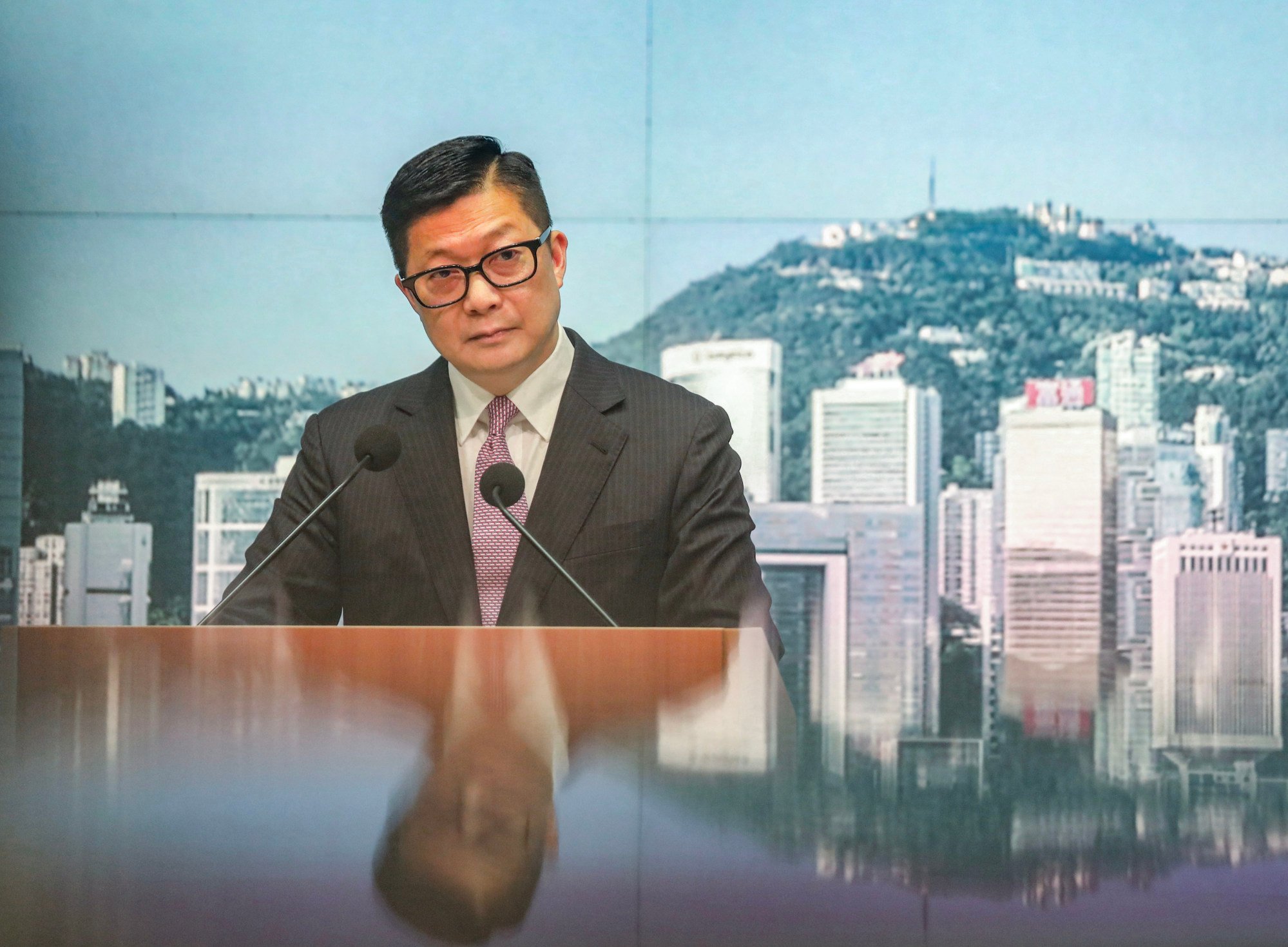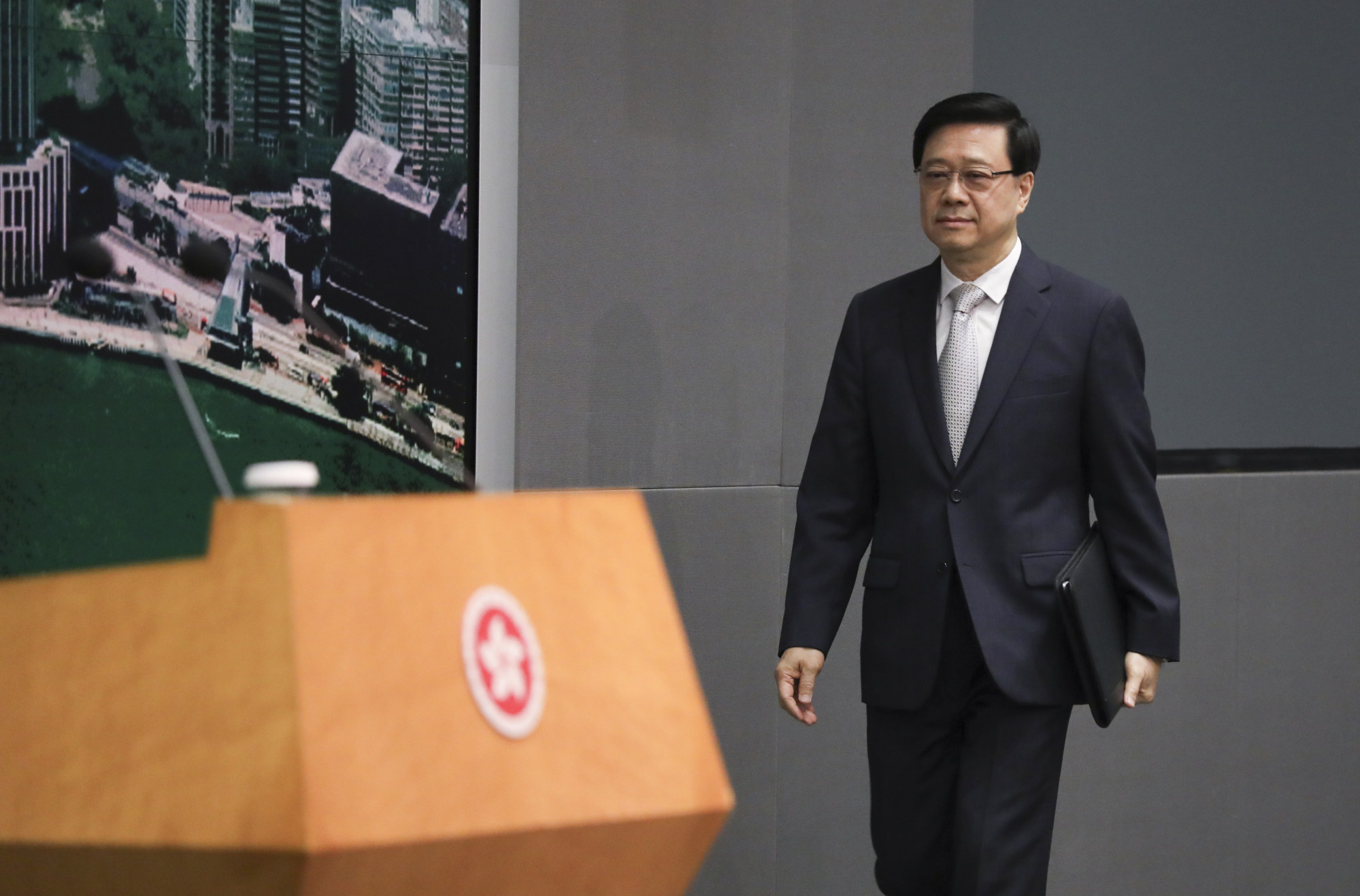
Hong Kong security chief can now freeze assets in national security cases until end of court proceedings
- Earlier limit under national security law capped period at two years unless High Court authorised extension
- Security chief Chris Tang also warns fugitives should not assume they are protected by foreign governments
Hong Kong’s security chief has been empowered to freeze the assets of suspects involved in national security cases until legal proceedings have ended, removing an earlier limit that capped the period at two years unless the High Court authorised an extension.
“If you are aware that a person has violated, or is suspected of violating, crimes that endanger national security, donating money to them could potentially be considered a criminal act,” Tang said.

The government said the expanded powers of the security chief were needed to clear up legal uncertainties relating to Article 43 of the national security law.
“The amendments are technical in nature and the scope … is extremely narrow: it only aims at making clear provisions in respect of the validity period of [the] freezing notice, without changing the basis or principle for issuing such notice,” a spokesman said. “If the related proceeding [has] not yet concluded, it is only natural that the notices should remain valid in the meantime.”
Chief Executive John Lee Ka-chiu and the Committee for Safeguarding National Security had decided to make the chang, which took effect immediately, he added.

Article 43 states that national security police can freeze assets, apply for restraint orders, and confiscate and forfeit property used or intended to be used for an offence, criminal proceeds or any other related assets.
Freezing notices were previously valid for up to two years, and the security minister needed the permission of the High Court for any extension, which would only be granted if judges determined the investigation could not be completed within the original time frame.
Hong Kong national security police put HK$1 million bounties on 5 more fugitives
The previous rules did not clearly specify whether a notice could be extended before the conclusion of the court proceedings, especially in criminal cases, the spokesman explained. But the notices would now remain valid “while the proceedings to which it relates are pending” and “until the conclusion of the proceedings”.
Chinese embassy condemns UK’s ‘flagrant interference’ in Hong Kong affairs
He maintained that defendants’ property rights remained protected as they could apply to the High Court for the notice to be revoked or for a licence to deal with the frozen assets.
Barrister Ronny Tong Ka-wah, a member of the key decision-making Executive Council, said the change was introduced to avoid disputes between the prosecution and the defendant.
Legal academic Simon Young Ngai-man noted the extended powers aligned with those granted by the Organised and Serious Crimes Ordinance. The amendment also clarified that only a magistrate’s warrant, instead of an arrest, was needed to begin the process of freezing a suspect’s assets, he explained.
In May 2021, just before Lai appeared in court to face unauthorised assembly charges related to a National Day protest in 2019, authorities froze nearly HK$500 million (US$64 million) of his assets, including his 70 per cent stake in the Next Digital media company.
Hong Kong court backs Jimmy Lai, 6 others in attempt to overturn convictions
National security police have also blocked some of the assets of 13 fugitives with HK$1 million bounties on their heads. They include former legislators Nathan Law Kwun-chung, Dennis Kwok Wing-hang and Ted Hui Chi-fung, unionist Mung Siu-tat, lawyer Kevin Yam Kin-fung, and activists Finn Lau Cho-dik, Anna Kwok Fung-yee and Elmer Yuan Gong-yi.
On Thursday, authorities announced bounties on another five activists: Simon Cheng Man-kit, Frances Hui Wing-ting, Joey Siu Lam, Johnny Fok Ka-chi and Tony Choi Ming-da, and froze at least some of their assets.
Security chief Tang stressed that the bounties were based on evidence and prosecutorial policies, warning countries such as Britain and the United States against harbouring the fugitives.
British Foreign Secretary David Cameron described the latest round of bounties as targeting individuals for “exercising their right to freedom of expression”.
“We will not tolerate any attempt by any foreign power to intimidate, harass or harm individuals or communities in the UK,” Cameron said. “This is a threat to our democracy and fundamental human rights.”
A Hong Kong government spokesman on Friday said: “No country will watch with folded arms acts and activities that endanger national security.”
Releasing information about fugitives and seeking assistance from the public in apprehending them was a common practice of law enforcement agencies and in line with international conventions, he added.


